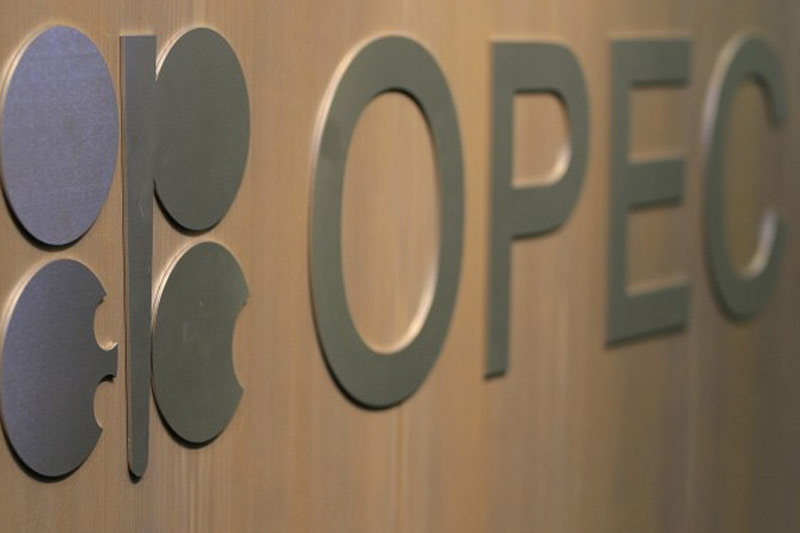By Vladimir Soldatkin and Olesya Astakhova
MOSCOW (Reuters) – As the world’s most powerful oil producers ponder further supply cuts, Russia has little incentive for a radical change as its energy revenue is strong, oil prices are higher than its forecasts and its budget deficit is narrowing.
Ministers from OPEC+, which groups the Organization of the Petroleum Exporting Countries (OPEC) and allies led by Russia, meet on Sunday in Vienna.
OPEC+ is set to consider whether to make additional oil supply cuts, three OPEC+ sources told Reuters with prices down by 16% since late September as crude output in the U.S., the world’s top producer, held at record highs, while the market was concerned about demand growth, especially from China, the No. 1 importer of oil.
“I don’t see any reasons to change something radically,” a source close to the Russian government said on condition of anonymity about the forthcoming OPEC+ meeting.
The source added that there was still a chance for surprises at the face-to-face meeting.
Saudi Arabia, Russia and other members of OPEC+ have already pledged oil output cuts of 5.16 million barrels per day, or about 5% of daily global demand, in a series of steps that started in late 2022.
‘COMFORT ZONE’
President Vladimir Putin says Russia has not simply survived but has prospered despite the West’s imposition of the most stringent sanctions ever imposed on a major economy, including a cap on the price of Russian oil at $60 per barrel.
After a contraction in 2022, Russia’s economy is forecast to grow by around 3% this year, faster than either the United States or the Euro zone, according to Russian forecasts.
Robust global oil prices this year and Moscow’s growing use of a shadow tanker fleet have meant that much Russian oil has traded mostly above the Western oil cap price.
Moscow-based independent oil analyst Alexei Kokin said the oil prices declined from “very comfortable” levels to “just comfortable” levels.
“That’s why, it looks like there is no special need for a move (for Russia). To leave the production restrictions as they are is an acceptable option,” he said.
Russia has budgeted the price of Urals, its flagship oil grade, at 4,788 roubles ($53.36) per barrel this year.
The Urals price on Friday fell below the Western price cap level of $60 per barrel amid a rise in freight rates fuelled by fresh U.S. sanctions on shipowners and weaker global oil prices.
But it was still higher than 5,000 roubles per barrel and on Tuesday exceeded $60 per barrel again.
Budget plans published in September envisage prices averaging $85 per barrel next year – more pessimistic than a Reuters poll forecast – and a Urals price of $71.30.
RUSSIAN REVENUE
Russia’s budget deficit narrowed further last month thanks to higher oil prices, a lower rouble rate and an inflow of quarterly tax payments.
The deficit for the first 10 months of the year stood at 1.24 trillion roubles ($13.45 billion), or 0.7% of gross domestic product (GDP). That was far better than the initial plans for a deficit of 2.93 trillion roubles, or 2% of GDP for the whole 2023.
Oil and gas revenue in October was up 27.5% from a year earlier, although for the first 10 months of the year they were down 26.3%.
However, the share of energy sales in the federal budget proceeds – which used to exceed 50% of total budget revenue – has drastically declined.
In 2022 the share stood at 41.6% of total budget revenue, while in January-September of this year, oil and gas sales accounted for 28.3% of total proceeds of 19.73 trillion roubles ($220 billion).
Russia remains a natural resources superpower.
It has remained the world’s top seller of grain. It also exports fertilizers and other commodities. Its other key sources of budget revenue are added value tax, a windfall tax of 300 billion roubles and other extra fees.
“The Russian budget is more sensitive to oil prices and the rouble exchange rate than oil production, so it will tend to favour current oil output targets as long as oil remains between $75 and $100 a barrel,” said Ronald Smith, a senior analyst BCS World of Investments in Moscow.
On Tuesday, Brent crude futures were down 41 cents, or 0.5%, at $81.91 a barrel as of 0836 GMT.
($1 = 89.7230 roubles)
Read the full article here





